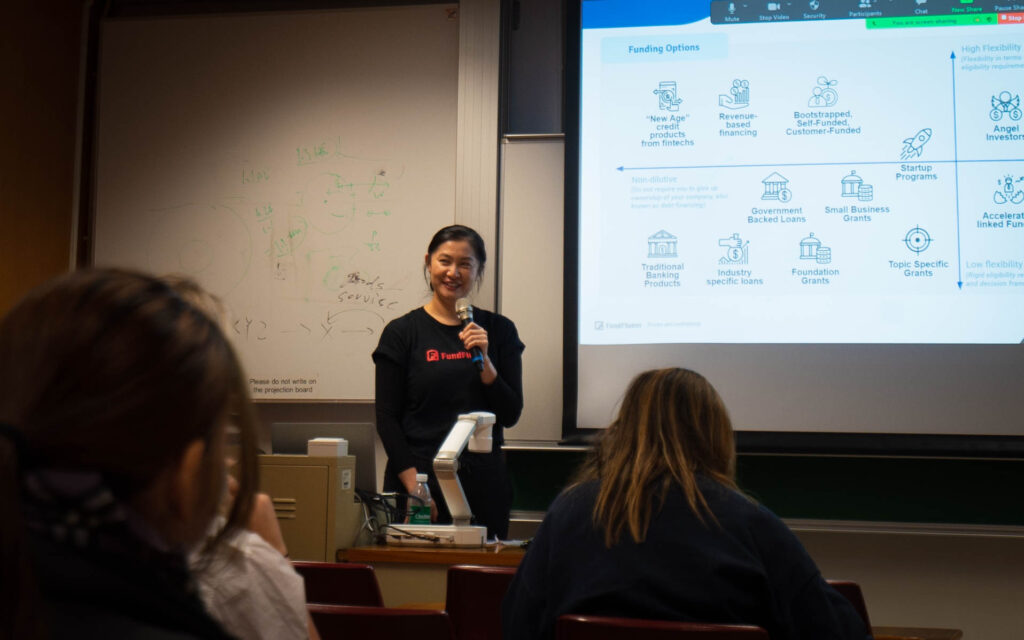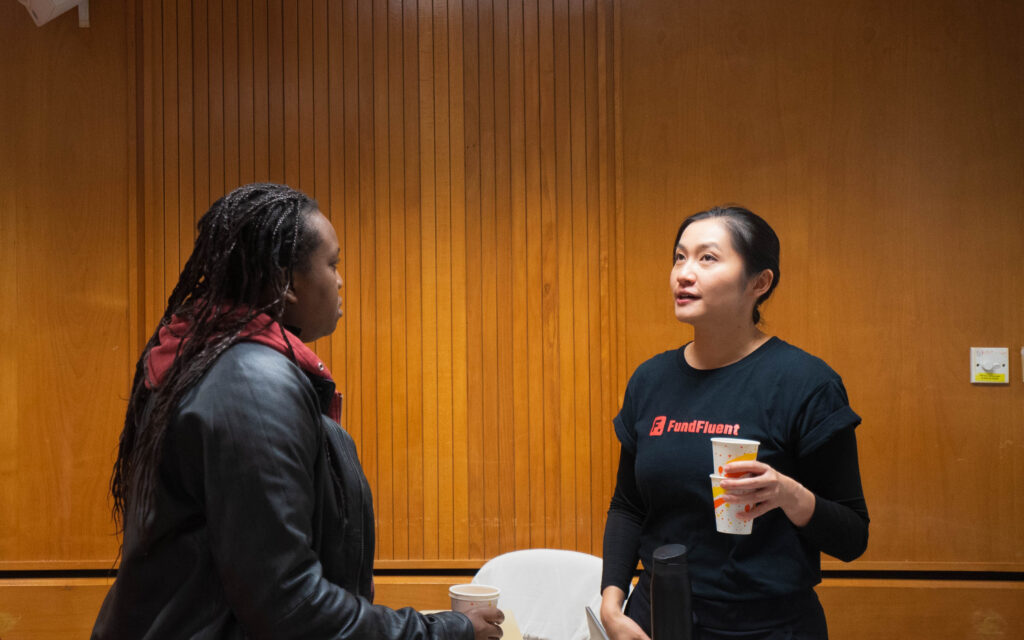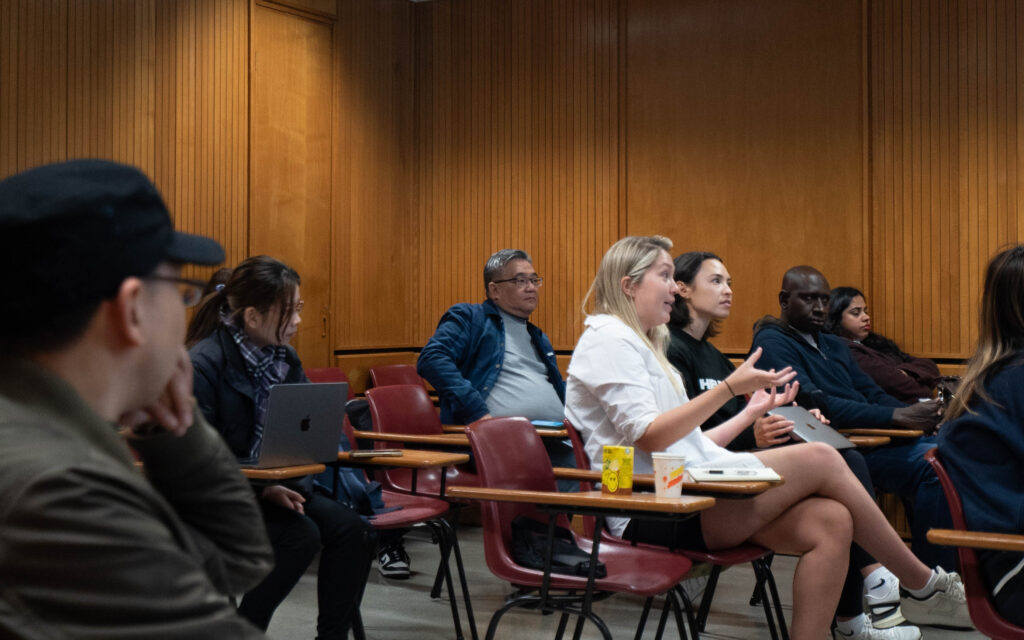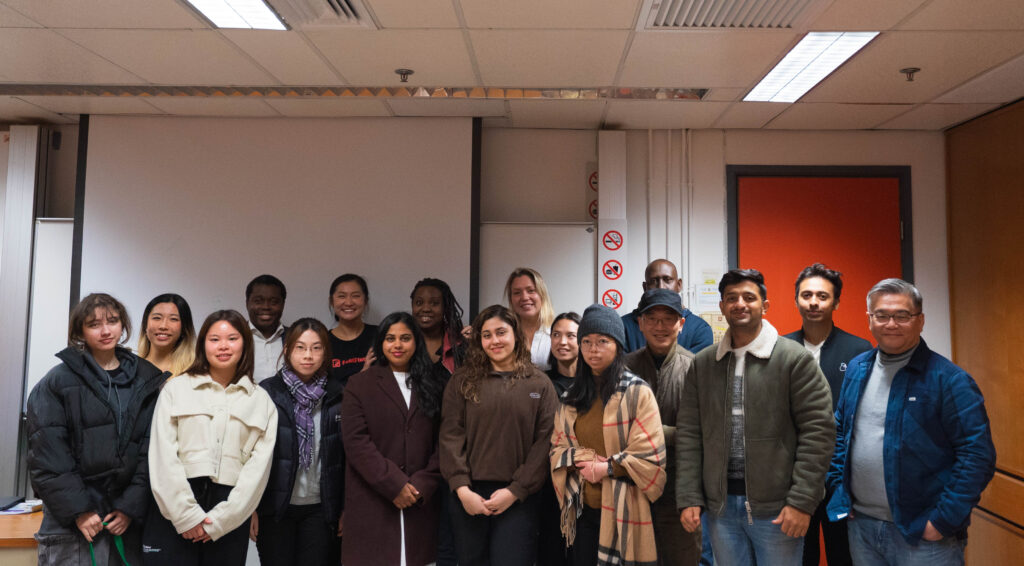As a founder or leader of a small business or social impact organization, you may have your vision and mission clearly outlined as well as a dedicated staff who shares your vision. But is your organization funding-ready? What does it take to be funding-ready?
On 27 January 2024, Foundation for Shared Impact (FSI) collaborated with our long-time partner, FundFluent, to co-host the “Unlocking Funding Readiness for Small Businesses” workshop for the mentees and mentors of our Mentorship Program for Ethnically Diverse Entrepreneurs.

At the third practical workshop for the 2023-24 program cohort, Jenny Au, CEO and Co-founder of FundFluent, drew upon her personal experiences in corporate venture building, co-founding a startup, and helping Hong Kong SMEs access funding, to illustrate the resources, strategies, and mindset necessary to achieving funding readiness.
Leveraging Government Grants
When sharing with the participants the available funding options for small businesses in Hong Kong, Jenny highlighted the different categories of funding, such as non-dilutive and dilutive funding as well as high-flexibility and low-flexibility funding, and the different types of funding ranging from traditional banking products, government-backed loans and industry-specific loans, grants from the government and private institutions, to government-backed startup programs.

Here, Jenny shared a case story of a client in e-commerce. “Once they had a physical product, they launched it on Kickstarter to get crowdfunded by potential customers from all over the world. This became initial revenue and operational proof to qualify for government grants. We helped them leverage the Technology Voucher Programme (TVP), a Hong Kong government-backed grant that helps small businesses increase operational efficiencies through technology adoption, to build out their shop on Shopify. The other government grant they applied for was the SME Export Marketing Fund, which helps small businesses in Hong Kong to grow and tap into overseas markets.”
From her experience in consulting for her clients, Jenny has found that as soon as a startup founder is able to prove their business’ revenue stream and growth, various different funding options will become accessible.
Funding Readiness: The FundFluent Case Story
But how does one prove their organization’s revenue stream and growth, in order to identify suitable funding options and attract vision-aligned investors or funders?
“Make sure you are clear on the social return on investment (SROI),” said Jenny. “Ask yourself, how do you size up the social impact that your project or business has the potential to drive? What are the ways that you intend to drive that impact? Your ability to articulate or prove that you have an ability to drive that SROI matters to potential funders and investors. You need to be able to not just put together a business case for profit, but also to be able to prove that you are on your way to solving this socially impactful problem. You need to help your funders or investors understand what exactly is the problem you are trying to solve and how you are going to use the financial resources to solve it.”

That is, in fact, what led to the successful launch of FundFluent, which has helped businesses access US$24.8 million in funding to date, and is currently preparing the release of an AI-powered database to enhance SMEs’ search for funding options.
In early 2020, when Jenny and Wilson Tai, a certified financial risk manager, came up with the business idea grounded in increasing funding accessibility for small and medium enterprises (SMEs), they bootstrapped and self-funded to put together a pitch deck and submitted it to Cyberport. After being accepted to the ideation phase of the Cyberport Creative Micro Fund, FundFluent fast-tracked into the incubation phase, and by August of the same year, the business was launched.
As the co-founder of a fast-growing startup, Jenny shared some of her key takeaways:
- Be very clear in terms of how you are solving a socially impactful problem, and traction is an incredibly attractive option for a lot of strategic investors.
- Make sure you know what your business model is – to be able to prove the validity of your business model and iterating over time is important when accessing a grant.
- Understand that the money you take has baggage. Depending on where the money is coming from, you have to listen to your stakeholders. Grant providers possess the authority to approve or reject applications; meanwhile, investors may offer funds but impose milestone-based conditions that could jeopardize the investment.
- Secure your customers – make sure that you are providing an invaluable product or service to your customers. The size and growth potential of your customer base matters to funders and investors.
- Have frank conversations with your team and investors/funders about allocating shares based on team members’ vital contributions, setting up periodic reviews to adjust equity as their roles and impacts on the company’s growth become increasingly clear.
- Ensure there is a single executive decision-maker, focusing on actions that serve the company’s best interests rather than being swayed by anyone and everyone’s opinions and interests.
Budgeting the Digital Way
When budgeting and managing resources, Jenny stressed the importance of having data in a structured and validated way to inform and enhance the efficiency of the decision-making process for funders and investors. In order to efficiently manage finances, streamline transactions, and enhance financial tracking for funding preparedness, Jenny recommended digital tools such as Xero, Stripe, Airwallex, Google Sheets and Slides, and Notion, in addition to sharing tips on setting up a budgeting framework.
“You need a unified view of your finances at all times, as the ability to articulate your business’s full story through data is essential for securing almost any type of funding,” said Jenny. “As a prerequisite of accessing funding, you need to be able to use data to prove what the business model looks like, how money flows through the business, and how money flows through the value chains you create. Given the likelihood of applying for various funding opportunities, leveraging digital tools to organize, showcase, and oversee your financial information is key, making it straightforward for others to evaluate your business’s potential.

Work with FSI to Help SMEs Access Better Funding and Scale
The workshop was well received by the mentees and mentors of our Mentorship Program. Said Kopal Manglik, Founder of And She Does: “My biggest takeaway is the importance of adaptability and planning. What I planned may not happen the way I want it to. That is when I’ll have to change according to the availability of new resources, a new environment etc. I’m now clearer than before about exactly what I want and what exactly I have to do.”
“I enjoyed the workshop as I got to learn about some of the different funding options that I didn’t know were available,” said Dhiresh Buxani, Founder of One Project.
Dhiresh’s sentiment was echoed by Mahum Shaikh, Founder of KOLture: “I have learnt to budget a lot more smartly! Even though I’m still in the early stage of building my startup, I will keep in mind all the resources that I can tap into at a later stage.”

For the second year running, FSI’s Mentorship Program for Ethnically Diverse Entrepreneurs couldn’t have conducted an informative workshop on fundraising and financing for under-resourced entrepreneurs without our partnership with FundFluent.
We owe our immense gratitude to FundFluent not just for generously sharing their expertise, insights, and resources with under-funded and under-resourced entrepreneurs and social impact leaders, but also our aligned beliefs in driving systems change through broad cross-sector collaboration and knowledge sharing.
If you share our vision and mission and would like to work with us to create a more equitable and sustainable future for Hong Kong, get in touch with us! We are always looking for skilled volunteers who can help us research and contribute to our publicly accessible resource libraries and databases such as the Entrepreneur’s Toolkit, Social Impact Knowledge Hub, Charity Database, and Funding Opportunities Database.
If you are a startup founder in Hong Kong, check out our checklist for early-stage funding and other resources in our Entrepreneur’s Toolkit. If you would like to receive or provide direct business support to under-resourced entrepreneurs, reach out to our Community Business Support team!





